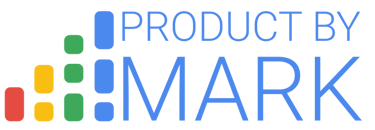The Zen Approach to Product Management Interviews: From Student to Teacher
How a simple mindset shift can transform your interview performance and confidence
Mark Rose
7/9/20253 min read


I've been practicing yoga for about a decade, and there are two concepts from yoga that completely transformed how I approach—and coach others for—product management interviews. These insights don't just apply to Google interviews; they're universal principles that can change how you show up in any high-stakes conversation.
The Practice Principle
In yoga, everyone has their own practice. When I walk into a yoga studio, I have my practice, and the person next to me has theirs. We might complement each other—"Nice practice today"—but it's deeply individual. Each person brings their own experience, strengths, and journey to the mat.
Product management works the same way. You and I are both practitioners of product management, but our practices are different. Your experiences, your approach to solving problems, your unique perspective—that's your practice. And it's valuable.
The Teacher-Student Symbiosis
The second concept is even more powerful: in yoga, there's a symbiotic relationship between teacher and student. Yes, the teacher instructs the student, but the student also teaches the teacher through their practice, their questions, their unique way of moving through poses.
Here's where the magic happens for interviews: You need to walk in as the teacher.
Flipping the Script
Most people approach interviews thinking they're the student being tested. The interviewer asks, "How would you solve this problem?" and you scramble to give the "right" answer, hoping to pass their test.
But what if you flipped that script?
What if you walked in thinking: I'm here to give a gift to my fellow product practitioner.
When your interviewer asks, "How would you approach building a product for detecting smells?" you're not desperately trying to pass a test. Instead, you're sharing your practice—your thoughtful, experienced approach to product problems—as a gift to a peer.
The Confidence Transformation
This mindset shift creates something remarkable: authentic confidence.
When you're giving a gift rather than taking a test, several things happen:
You feel purposeful instead of defensive
You become collaborative instead of competitive
You share insights instead of reciting answers
You demonstrate leadership naturally
The person across the table feels this energy. Instead of thinking "Let me evaluate this candidate," they start thinking "This is really interesting. I want to tell my team about this approach."
The Billion-Dollar Mindset
This teacher mindset is especially crucial for senior product roles. Companies like Google aren't just looking for someone who can follow frameworks—they're looking for people who can envision and build billion-dollar businesses.
When you approach a product sense question with teacher energy, you don't just walk through an MVP and roadmap. You paint a vision: "If we execute on this thoughtfully, I genuinely believe we can build a billion-dollar business here."
That's not arrogance—that's the kind of confident imagination that separates senior product leaders from the pack.
Beyond Product Questions
This zen approach extends beyond technical questions to behavioral interviews too. When someone asks about a time you influenced without authority, you're not nervously recounting a story hoping it's good enough. You're sharing wisdom from your practice—insights that might actually help the interviewer think differently about leadership.
The Practical Application
Here's how to embody this in your next interview:
Before you walk in, remind yourself:
I have valuable experience and insights
I'm here to share my practice with a fellow practitioner
This person wants to learn something from our conversation
I'm giving a gift, not taking a test
During the interview, notice when you slip into "student being tested" mode and gently shift back to "teacher sharing wisdom."
In your answers, focus on the insights and principles behind your approach, not just the mechanics of frameworks.
The Meta-Benefit
The beautiful irony? When you stop trying so hard to impress and instead focus on sharing value, you naturally become more impressive. When you stop worrying about being judged and start thinking about what gift you can give, the judgment tends to take care of itself.
Your interviewer's job is to assess whether you'd be a great addition to their team. But when you show up as a teacher—confident, purposeful, and generous with your insights—you make that job easy.
You give them exactly the evidence they need to write: "This person would make our team better."
Your Practice, Your Gift
Remember: your unique approach to product management is your practice. Own it. Value it. And in your next interview, share it as the gift it truly is.
After all, the best teachers are simply students generous enough to share what they've learned.
What's one insight from your product management practice that you'd love to share with a fellow practitioner? That's probably exactly what your next interviewer needs to hear.
Copyright 2024. All rights reserved. Privacy Policy. Refunds and Cancelations. Terms and Conditions.


